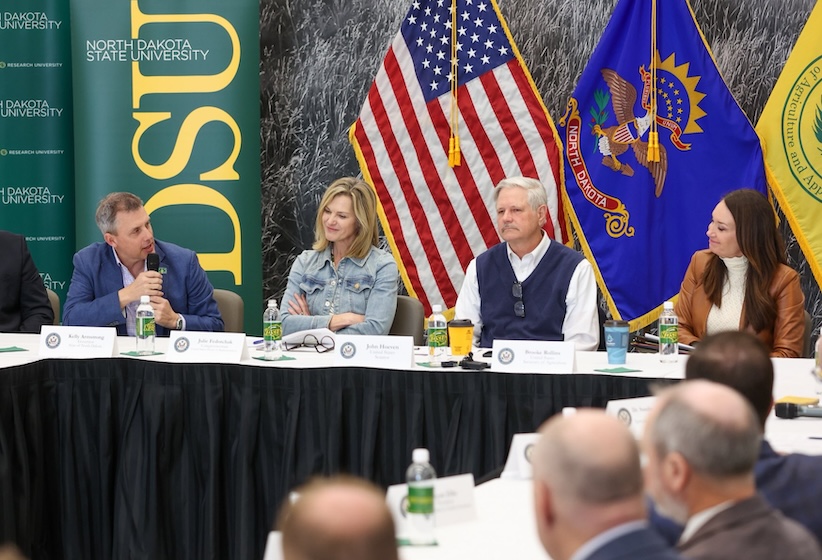North Dakota – Governor Kelly Armstrong of North Dakota participated in a roundtable discussion with U.S. Secretary of Agriculture Brooke Rollins in Fargo today, where they welcomed her to the state and highlighted the Trump administration’s efforts to support farmers and ranchers. Armstrong thanked Rollins for her responsiveness to North Dakota’s agriculture sector, calling the administration’s actions a “huge benefit” to the state.
“North Dakota farmers and ranchers are the best in the world, and we appreciate Secretary Rollins coming to Fargo to hear firsthand about the challenges and opportunities facing our ag producers as they feed and fuel the world,” Armstrong said. “We look forward to working with Secretary Rollins and the entire Trump administration to strengthen U.S. food security, expand markets and restore fairness to international trade relationships, and roll back unnecessary regulations that restrict producers and increase costs for consumers.”
Secretary Rollins’ visit to North Dakota comes less than 70 days after her confirmation as the nation’s 33rd agriculture secretary on February 13. During the roundtable held at North Dakota State University’s Peltier Complex, Rollins engaged with agricultural producers, researchers, agribusinesses, and commodity groups. She announced that the U.S. Department of Agriculture would release over $340 million in disaster assistance for farmers, ranchers, and rural communities. This includes more than $5 million specifically for North Dakota to help rebuild electric infrastructure following damage from severe storms and wildfires.
The visit was hosted by U.S. Senator John Hoeven, a senior member of the Senate Agriculture Committee and chairman of the Senate Agriculture Appropriations Committee, who also took part in the discussion.
The roundtable served as an opportunity for North Dakota’s agricultural community to engage with federal leaders, discuss their ongoing challenges, and outline opportunities for growth in the sector. Secretary Rollins’ visit underscores the importance of continued collaboration between the state and federal government to support agriculture, ensure the long-term sustainability of farming and ranching, and address the concerns of producers across the nation.


